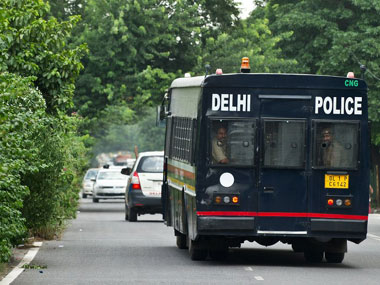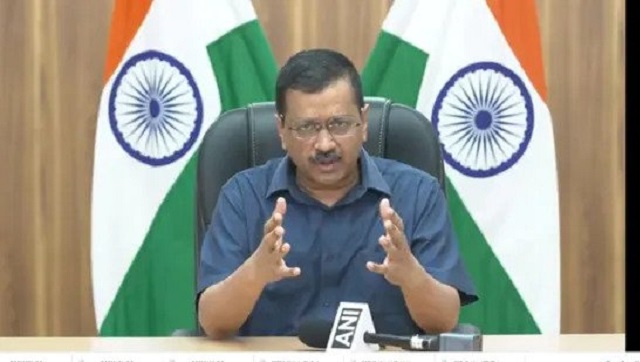By now, the BBC documentary on the 2012 Delhi gangrape case directed by Leslie Udwin has become the subject of national discourse and much ranting in India.
While the government of India was quick to ban the television telecast of the film in the country,such a ban proved to be useless in the age of the Internet.
The film was uploaded on YouTube by some users, and the links are now being shared on Facebook judiciously by many users. But by Thursday evening, the documentary was unavailable on several YouTube channels, with the message “This content is not available on this country domain due to a court order”.
Of course, this doesn’t mean that film won’t get shared. Many would have already found other surreptitious ways of sharing the film, from torrents to personal links, etc.
While the YouTube links now say that the film has been removed because of copyright reasons, an IANS report says that that YouTube blocked access citing court orders, even as the the government served legal notice to the BBC after it ignored a court’s restraining order and aired the documentary two days ahead of schedule.
“They were supposed to take final approval from the Tihar jail authorities on the interview of the convicts but they did not do so, and according to the contract signed with the BBC, they were barred to use the documentary for commercial purpose, which they have violated too,” the official told IANS.
The furore around the documentary has once again raised the issue of free speech in India, coming soon after the All-India Bakchod Roast controversy.
Parliamentary Affairs Minister M Venkaiah Naidu told the Lok Sabha, “We can ban the documentary in India but there is a conspiracy to defame India and the documentary can be telecast outside. We will also be examining what should be done. The Home Minister has said he will talk to the I&B Minister and find out what is the way.”
Of course, the logic that the film will tarnish India’s image abroad is not a very sound one; the 2012 gangrape has been a subject of international scrutiny for the last two years, so it’s not exactly a new subject.
But what is interesting, is how quickly Google has bent to the displeasure of the Indian government.
Google’s quick removal of the link stands in sharp to contrast to how it reacted to the controversy over the film ‘Innocence of Muslims’. This anti-Muslim film sparked massive anti-US violence in the Middle-East from Libya to Egypt with embassies coming under attack. But despite overwhelming criticism, Google strongly defended letting the film stay on YouTube in US. It should be noted that links for the film were blocked in India and Middle East though.
In the US, Google refused to take down the film, arguing that it would violate its freedom of speech rights under the US Constitution. But in India, such arguments are never made. The government issues a ban order and it’s quickly followed.
Of course, the Indian Constitution does put what it calls"reasonable restrictions" on free speech, “in the interests of the sovereignty and integrity of India, the security of the State, friendly relations with foreign States, public order, decency or morality or in relation to contempt of court, defamation or incitement to an offence.”
And when it comes to deciding what affects public decency or India’s integrity, nearly all governments have defined this in very broad terms.
Of course, Google isn’t the first company to quietly comply with the Indian government’s request for restrictions on free speech.
Last year, India had the highest number of content restrictions on Facebook globally. According to Facebook’s report, India had over 4,960 requests for “Content Restriction” and most of these requests came from law enforcement officials and India’s Computer Emergency Response Team (CERT). The content was linked to criticism of religion or the state which is prohibited in India.
While global Internet giants or even book publishers (who can forget ban on Rushdie’s Satanic Verses or the recent Wendy Doniger controversy ) may not be role models for free speech in India, they can hardly be blamed for not taking a stance on the issue of free speech, given that the law is restrictive in India.
But when it comes to the documentary India’s Daughter, one needs to examine the film beyond the ban or no ban issue. Activists, even those who been critical of the film, are saying that instead of a blanket ban, it needs to be aired later because telecasting the film could pose a threat to the legal process in India. Mukesh Singh, the convict in the Delhi gangrape, has appealed his death sentence.
Women’s rights activist and prominent lawyer Vrinda Grover writes on Facebook that rather than view the film in the whole ban or no ban complex, one needs to look at the question of “rule of law.”
Grover writes, “fair trial and rights of victim and accused. It is critical to remember that the legal process has not yet concluded, The appeal is pending in the Supreme Court of India…Telecasting this film, even as legal proceedings are pending does not advance the cause of women’s rights or the rule of law or the right to a fair trial.”
Grover adds, “I do not subscribe to the government’s stance that the film defames India. India should be ashamed of each and every act of violence against women. This film is however not an act of global solidarity. March 8th marks the day of struggle for the rights of women. The telecast of this film on that day will provide a platform for the broadcast of hate speech against women on International Women’s Day.”
In fact, prominent women’s rights activists like Indira Jaising, Grover, Kavita Krishnana have also written a letter to NDTV pointing out that while they are not in favour of a ban, telecasting the film will only derail the legal process that is still under way with the case.
“We have always upheld freedoms and civil liberties, and hence we write this letter to seek a postponement of the telecast, till the appeal and all other legal processes and proceedings relating to the 16 December 2012 gang rape and murder case have concluded”, the letter reads.
A copy of the letter has been shared by Kavita Krishnan on Facebook. The letter reads,
After viewing the film we are of the considered view that the film infringes upon and compromises the rights of the rape victim and the accused men.It must be underlined that the appeal in the case of 16 December 2012 gang rape and murder is still pending before the Supreme Court of India. This film clearly constitutes an obstruction in the administration of justice, and therefore violates the law. The film carries the potential to prejudice the outcome of the legal proceedings. Our objection to it being telecast during this period stems from our deep commitment to defending the human rights of all and upholding the rule of law.
The activists also say that the film only ends up serving a platform to amplify misogynist views against women, but that they are not in agreement with the government’s views on the film. “We also want to make it clear that our concerns do not emanate from the view that the film hurts the image of India. The pervasive violence against women is what tarnishes India. We distance ourselves from the grounds cited by the government for stopping the broadcast of the film,” they write.
No doubt, the documentary India’s Daughter has provoked complex reactions in the country. While we have noted earlier that the film lacks perspective and has only shock value, by banning the film the government has made it a new martyr for free speech in India.


)




)
)
)
)
)
)
)
)